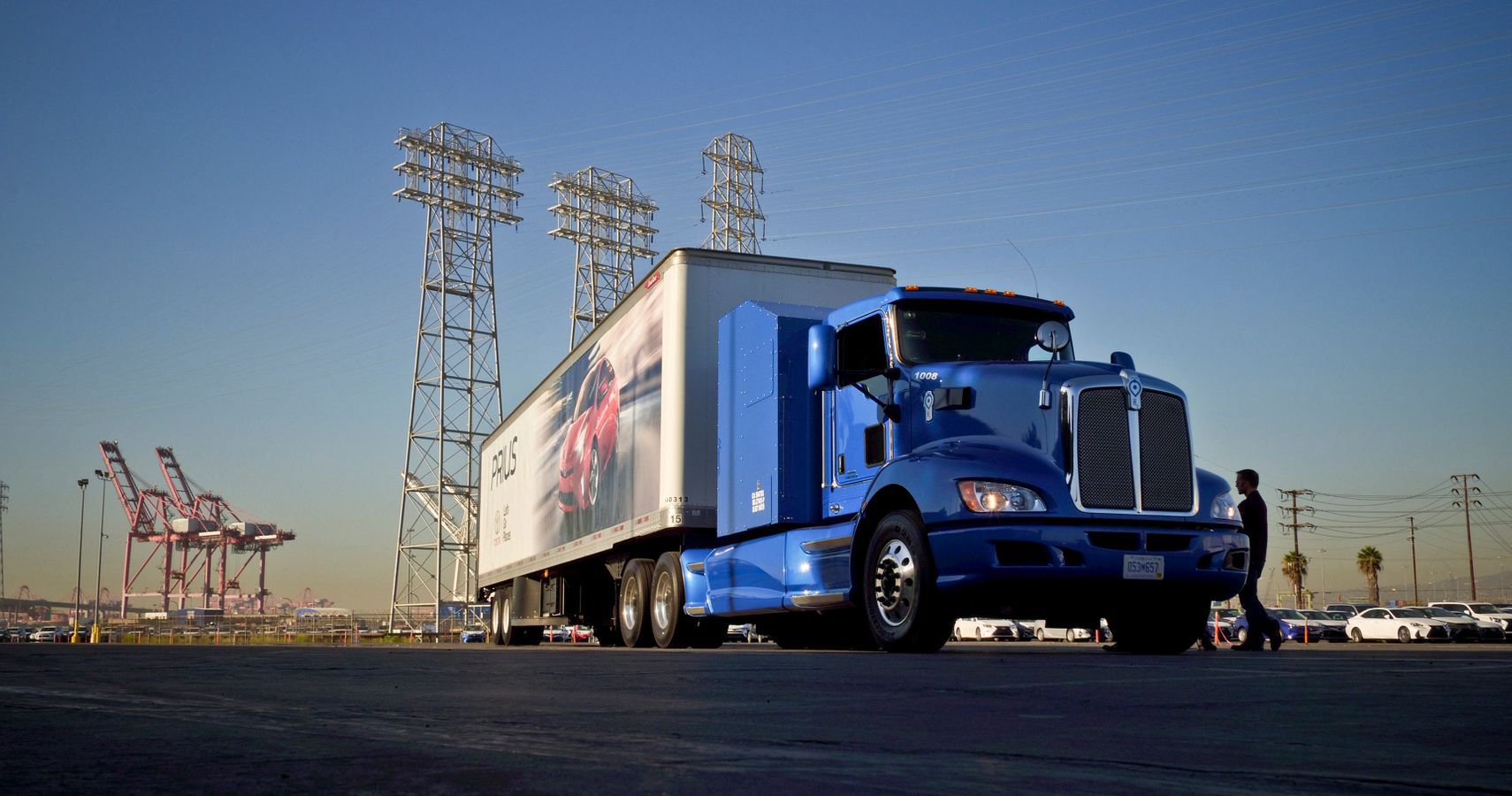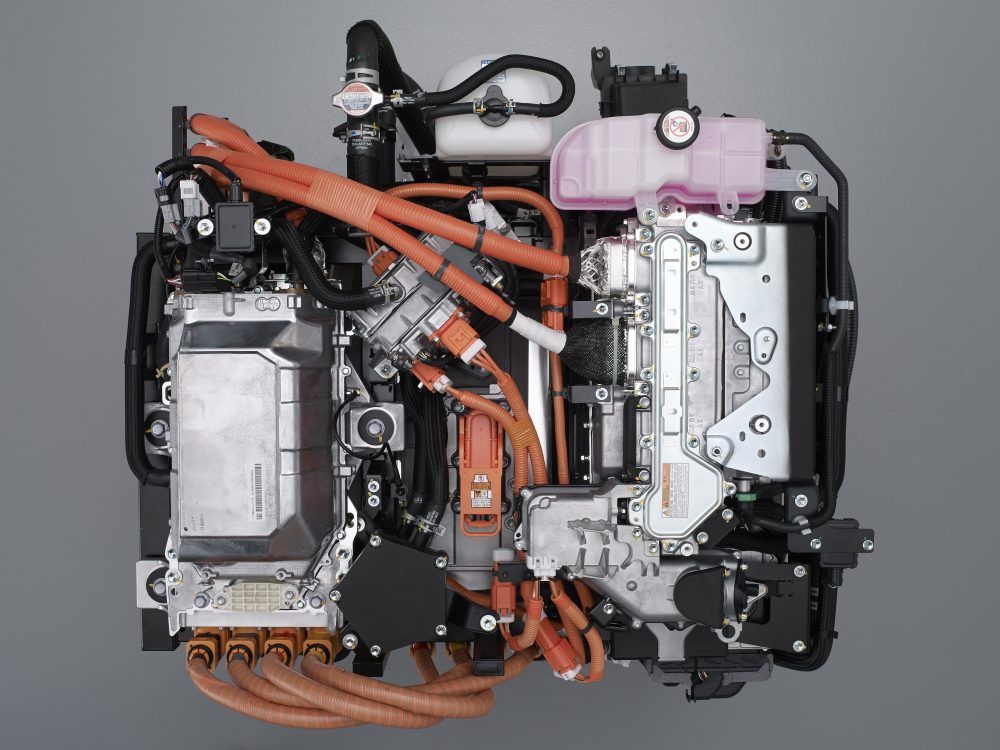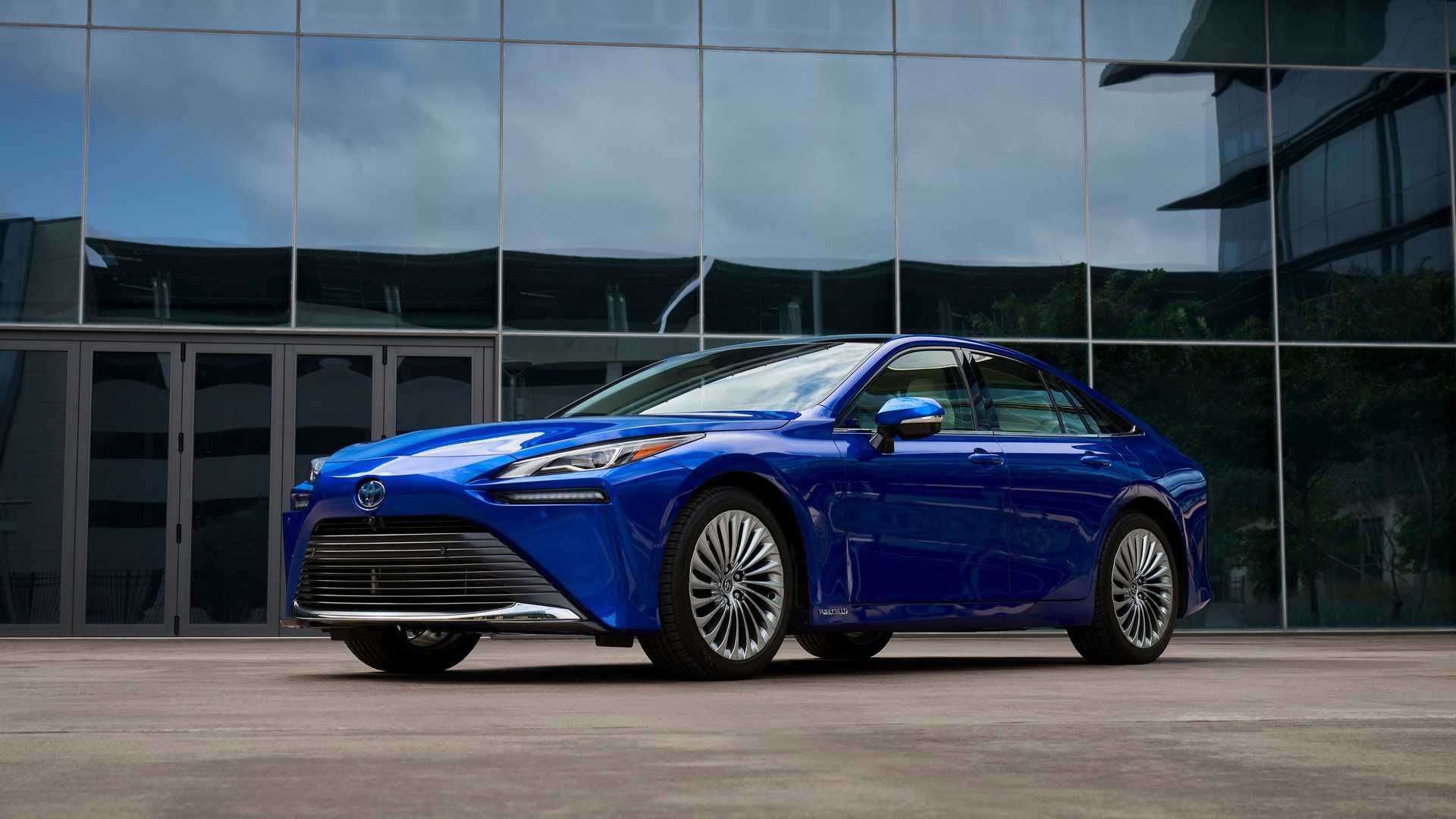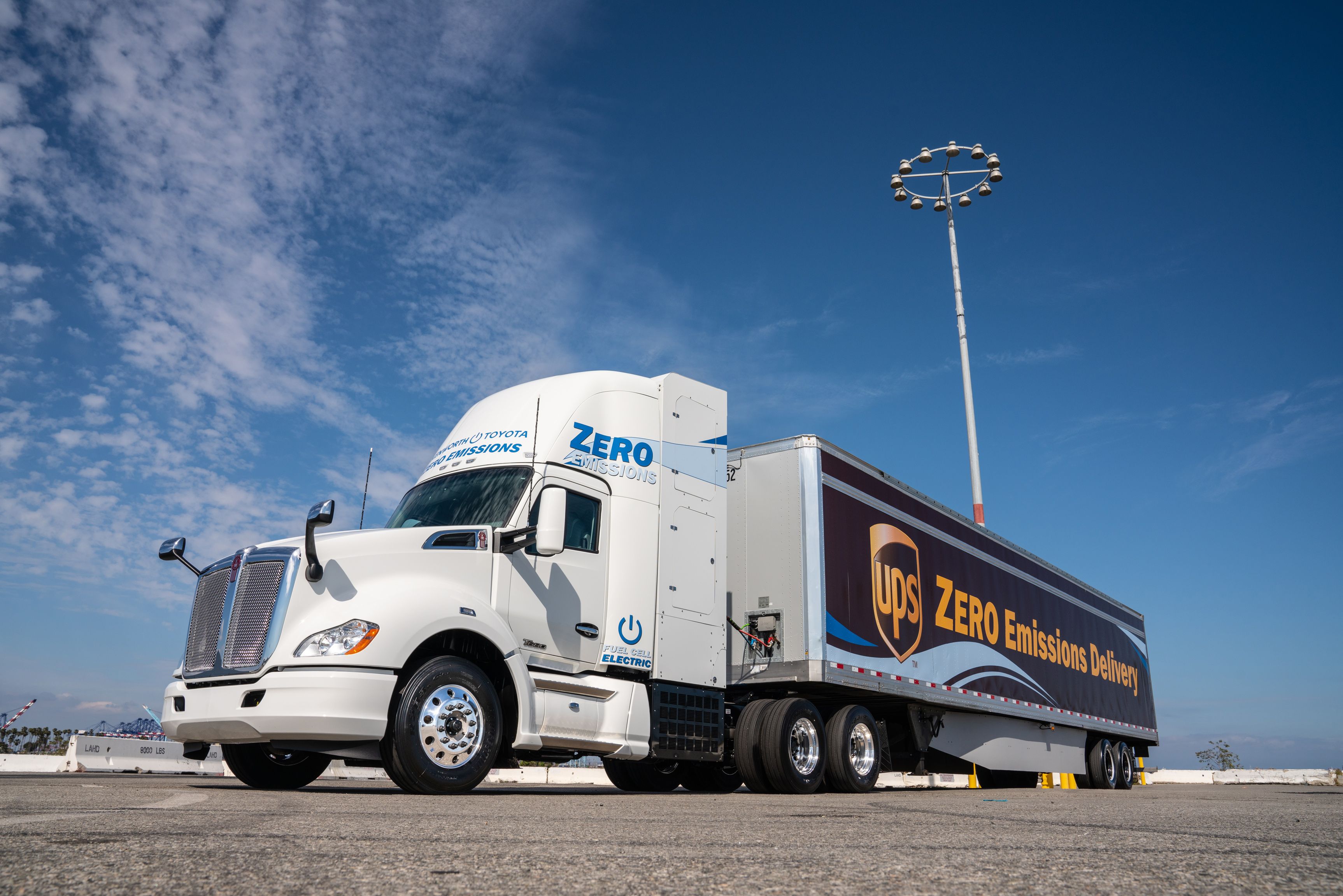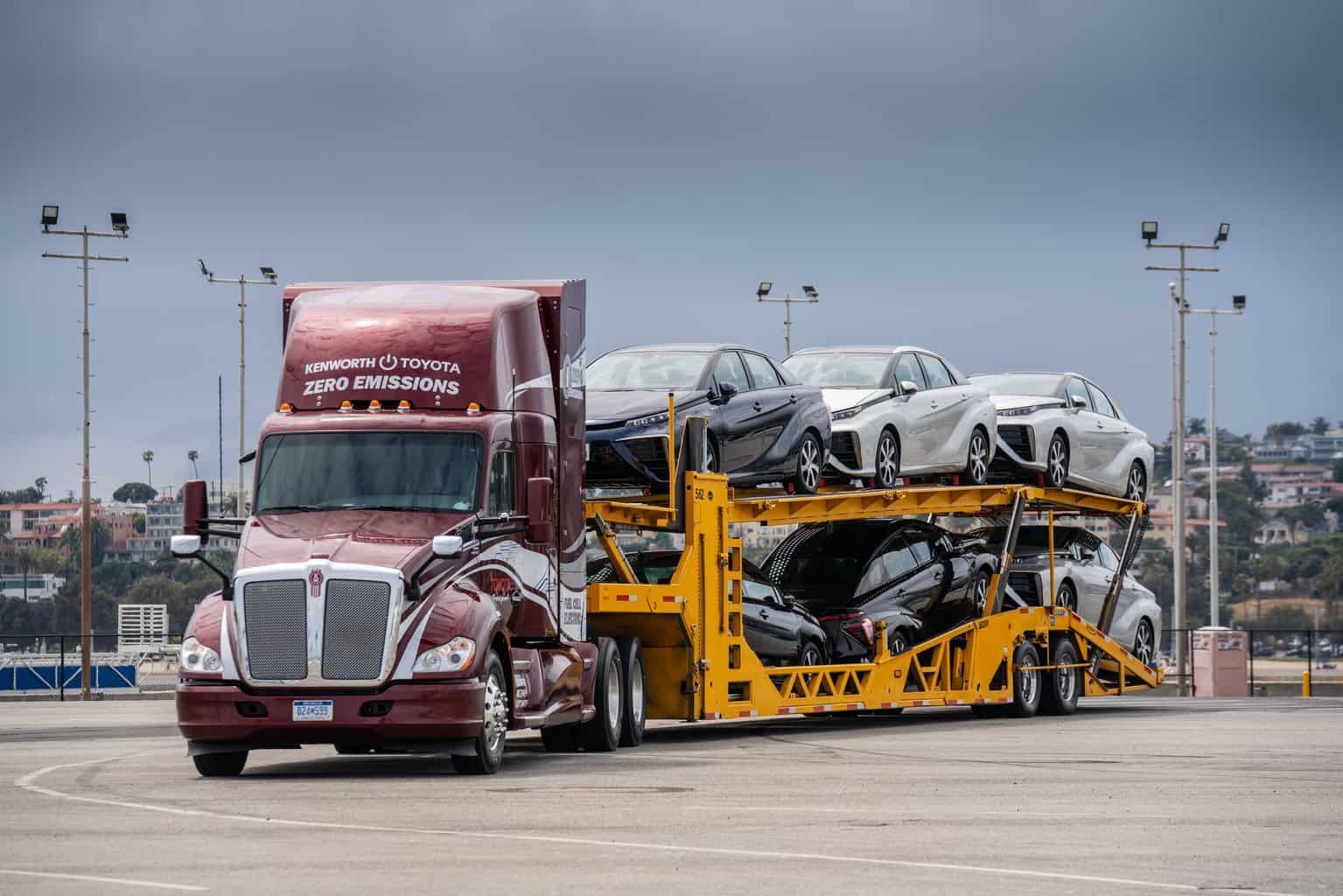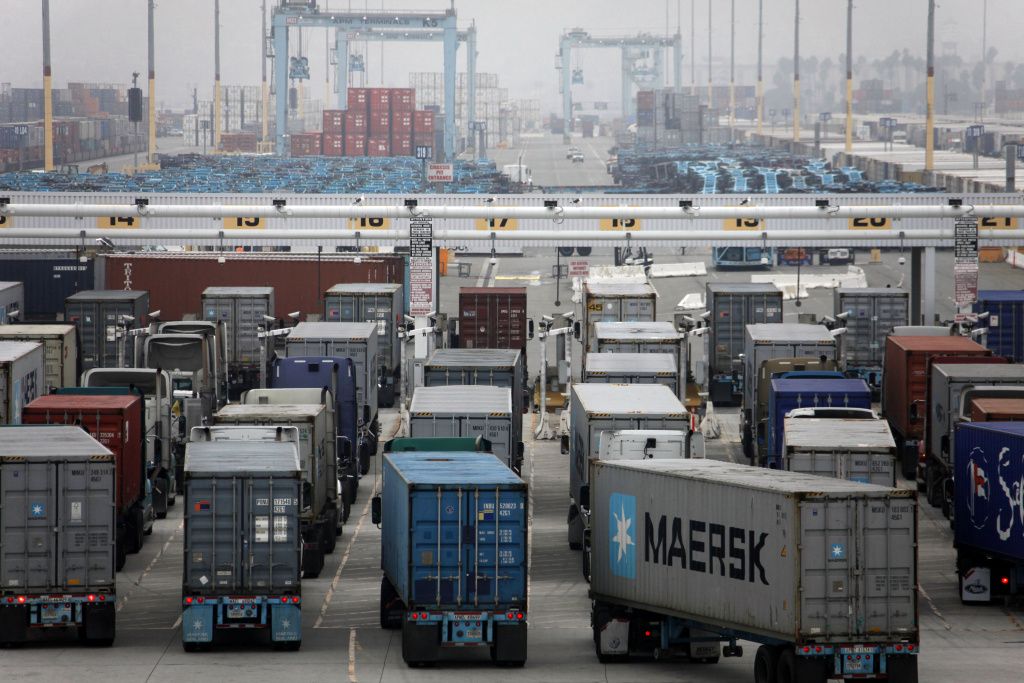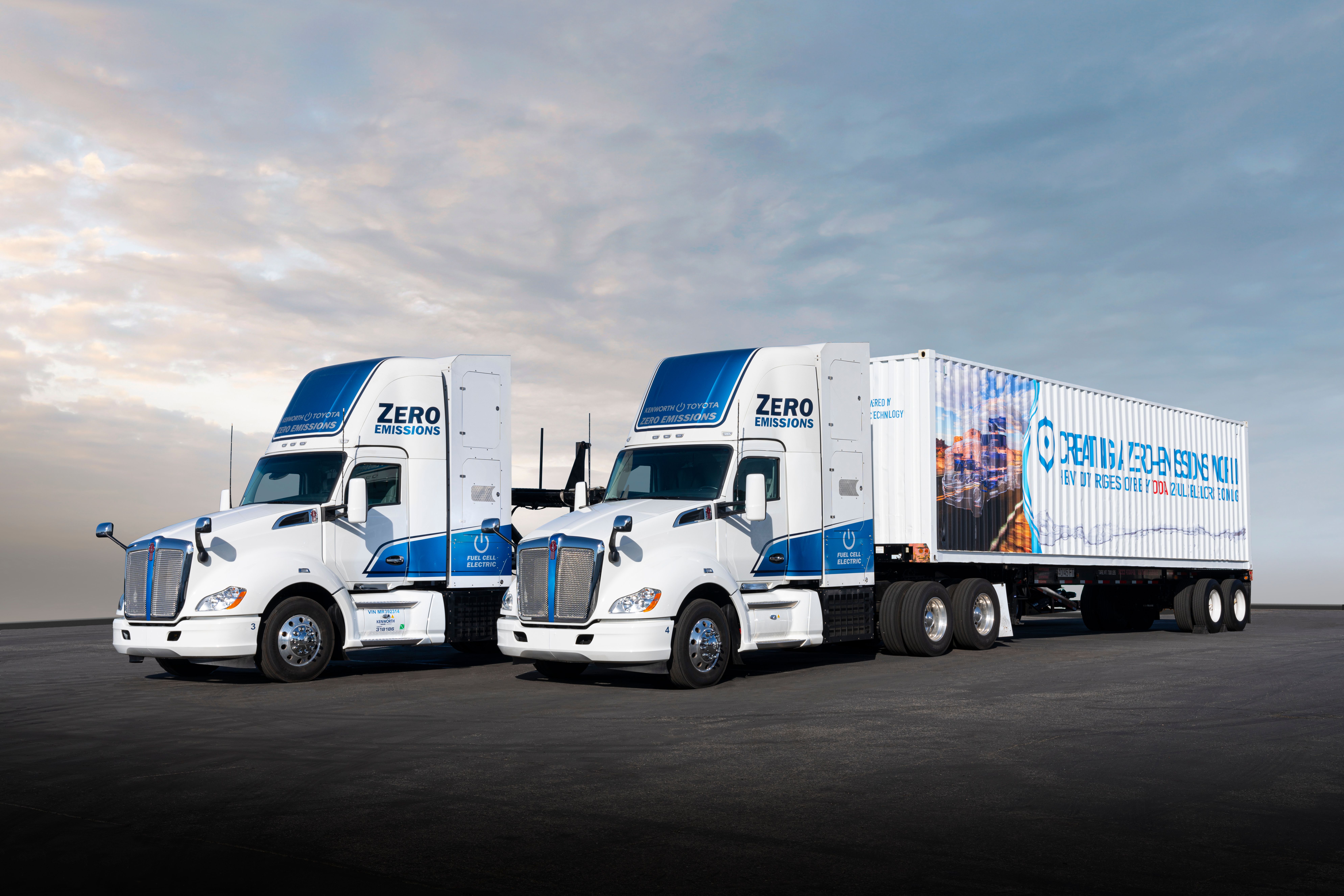Toyota has partnered with Kenilworth to develop a fuel-cell electric freight truck capable of 300 miles of range and zero emissions. The truck, which was developed as part of a zero-emissions policy benefiting the Port of L.A. and its surrounding areas, builds upon Toyota’s emergent fuel cell stack. The technology was primarily developed for Toyota’s Mirai sedan and is projected to power other vehicles such as trains, heavy equipment, and boats.
Toyota includes innovative features with its hydrogen system, including a catalytic filter that removes pollutants during the intake of air. Along with its implementation in vehicles such as the Mirai and semi-trucks, Toyota will promote sell this technology to other companies. Let’s take a look at Toyota’s fuel cell and its hydrogen-electric semi truck.
Toyota's Development Of Fuel Cell Technology
Toyota began developing hydrogen technology in 1992, and announced the zero-emissions Mirai in 2014. Its fuel cell stack forms the keystone of Toyota’s emergence into the hydrogen market. In a world where hydrogen-powered cars may still be regarded as expensive and inconvenient, Toyota offers a fuel incentive of $15,000 (or about 6 years) to owners of Mirai sedans.
Hydrogen is being embraced by numerous companies, including BMW with its iHydrogen X5 SUV. Although hydrogen seems like a perfect solution to the emissions crisis due to its singular, harmless byproduct (water), the infrastructure has yet to see significant implementation across the country. This is in part due to the cost of hydrogen, which can be more expensive relative to electric technology.
The Fuel Cell Electric Truck Makes 1,325lb-ft Of Torque
The fuel cell electric semi-truck is built upon a Kenilworth T680 chassis. The T680 proves to be a robust platform to test the new technology with its aerodynamic design. T680 comes standard with remote diagnostics, collision mitigation, and smart lane-assist features, complete with a luxurious cabin.
Toyota outfits the T680 with dual Mirai fuel stacks, which are optimized for high power density. It is paired with a 12kWh lithium-ion battery and heavy-duty electric motor. A total of 6 tanks store hydrogen, mated to the system that converts H2 (hydrogen gas) and O2 (oxygen gas) to electricity and water vapor through the process of reverse electrolysis.
With this technology, the truck is capable of more than 670 horsepower and 1,325lb-ft of torque. It offers an impressive range of approximately 300 miles with an 80,000-lb payload.
Andrew Lund, chief engineer of Toyota Motors Research & Development, commented that “After extensive testing with our proof-of-concept prototypes, we’re ready for the next step of putting more trucks into drayage operations. Moving toward emissions free trucks is more important than ever, and the ZANZEFF project has been instrumental in getting us closer to that goal”, he said.
It’s undeniable that the use of these technologies can significantly reduce emissions amidst operations that generate a significant amount of toxic byproducts. The project is part of Toyota’s Environmental Challenge 2050, aimed at reducing carbon dioxide emissions, conserving water, increasing resource efficiency and preserving nature. Companies such as Nikola, Tesla and Volvo have also offered hydrogen and electric powered semi trucks with the intention of use in logistics.
Toyota North America lists key focus areas of water, carbon, materials and biodiversity. Toyota has already tackled some of these goals by providing 18 electric vehicles (including Lexus models) and helping to reduce 35,000MT of CO2 over a period of 3 years.
The Truck Will Be Used For Freight And Logistics Operations
The project commenced around 2015 with the introduction of the California Collaborative Advanced Technology Drayage Truck Demonstration Project. The objective was to develop 44 emissions-free semi trucks for use at the Ports of L.A. and Long Beach. Major truck companies such as Kenworth, Peterbilt and Volvo participated in this project. The initiative included electric yard and class-8 trucks, electric gantry cranes and forklifts.
Around 2018, CARB (California Air Resources Board) awarded a grant totaling $41 million for the development of such trucks, referred to as the Zero- and Near Zero-Emission Freight Forwarding (ZANZEFF) program. With this grant, Toyota has been able to develop various test vehicles, the product of which is scheduled for delivery and functional use. A total of eight trucks will be distributed amongst companies Total Transportation Services, Toyota Logistics Services and UPS.
The primary goal of this pilot project will be for use in drayage operations at the Port of L.A., a major shipping terminal notorious for its volume of toxic emissions. Drayage can be defined as short-range ground transportation that facilitates the global shipping logistics chain. These trucks will be used in such a capacity to transport cargo to other warehouses and ports within a defined radius.
“The benefits of hydrogen are clear”, said Thiebault Paquet, director of Toyota’s Fuel Cell Business Group. “That’s why we expect our global sales of fuel cell systems to increase by a factor of 10 in the short term, and why we have dramatically increased our production capacity.” It will be intriguing to follow hydrogen fuel cell technology and its use in both heavy-duty trucks and consumer-oriented products.
SOURCES: Toyota, MotorTrend, Kenilworth, Digital Trends

